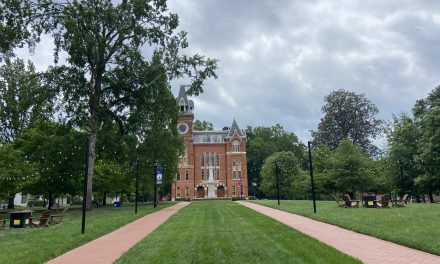Emory recently received national recognition for its mental health services and suicide prevention programs, along with 29 other colleges and universities.
The award is a seal of approval from the Jed Foundation, which is a nationwide organization that promotes emotional health and suicide prevention on college campuses, according to its website.
Other recipients include Yale University, New York University and the University of West Georgia. The Jed Foundation recognizes a school’s commitment to the emotional well-being of its campus, according to the website. The application process also allows university administrators and counselors to identify strengths and weakness in their mental health programs.
To qualify, Emory representatives completed the JedCampus online assessment that evaluated the University’s mental health services, according to criteria specified by the Jed Foundation’s website.
The website names criteria such as identifying students at risk, educating professionals on campus and providing mental health services and crisis management, among others.
Mark McLeod, the director of Emory’s Counseling and Psychological Services (CAPS), said Emory’s services are based on the public-health model of care, which emphasizes the importance of preventive care.
“When you’re looking at the Emory community, you want to focus as much on prevention and outreach as you do on providing services related to mental health,” McLeod said.
A report compiled by Emory Student Health and Counseling Services shows that 79.9 percent of Emory students – undergraduate and graduate – would consider seeking mental health services if faced with such personal issues.
In a survey conducted in 2011, 20.4 percent of Emory respondents reported having utilized University health and counseling services, compared to a national survey in which 13.3 percent of students reported using their respective university’s health and counseling services.
Emory students currently pay a $58 mental health counseling fee, which was instituted in 2008. In an email to the Wheel, McLeod, CAPS Suicide Prevention Coordinator Mahlet Endale and CAPS Assistant Director of Outreach Jane Yang, identified some of the center’s specific mental health programs, such as training the operators of Emory’s student-run help line.
Another initiative is an online outreach system for students, developed by the American Foundation for Suicide Prevention. The CAPS staff describes this as an anonymous way for students to converse with a counselor, “with the hope that it might be a way for someone in trouble to find the courage to seek needed help.”
While McLeod acknowledged that Emory’s program did not meet all the criteria listed on the Jed Foundation’s website, he said that Emory was “way ahead of the game.”
Linda Gross (’84C), an Emory alumnus and a volunteer for the Jed Foundation, said she initially encouraged the University to apply for the JedCampus seal.
Gross said that compared to when she was a student, Emory’s mental health services are now more extensive.
She also cited the presence of several student organizations that explore mental health issues. One such group is Emory’s chapter of Active Minds, a national organization that works to reduce stigma associated with accessing mental health care. Gross attributed these developments to a broader recognition of mental health issues in the community at large.
“The whole culture has changed,” Gross said.
– By Harmeet Kaur
The Emory Wheel was founded in 1919 and is currently the only independent, student-run newspaper of Emory University. The Wheel publishes weekly on Wednesdays during the academic year, except during University holidays and scheduled publication intermissions.
The Wheel is financially and editorially independent from the University. All of its content is generated by the Wheel’s more than 100 student staff members and contributing writers, and its printing costs are covered by profits from self-generated advertising sales.





Find The Bag You Want With The Most Fashionable Designs And Unique Styles On Louis Vuitton Outlet Store. Ever Since They Hit The Market, Louis Vuitton Purses Have Been Sought After For Their Fine Craftsmanship And Unmatchable Aesthetic Appeal. Welcome To Shop Luxurious Purses From Louis Vuitton Outlet Store.